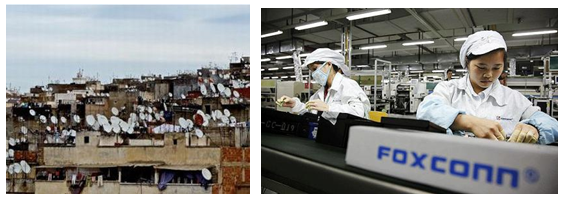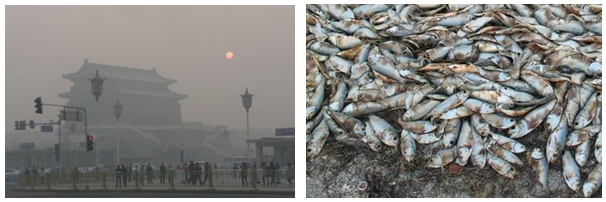Introduction
There may still be truth in the saying, “What happens in Las Vegas stays in Las Vegas.” But it is no longer true that what happens in China stays in China. Nor does what happens in the Middle East, Sub-Saharan Africa, or Latin America stay in those places either. Our world has become intertwined and complex, and we ignore that complexity at our peril. Energy, economy, environment, and a host of other global issues interact in ways that threaten the very existence of life on Earth. As complexity increases, sustainability comes into question.
Complexity comes with technology and development. Communication, transportation, agriculture, urbanization – all start simply and grow in scope and complexity. And while some parts of the world derive full benefits of increasing complexity, other parts remain without even some of the most basic features of modern life. Indeed, the gap between haves and have-nots in itself is a potential threat to peace and stability.
While animals are used for transportation in some parts of the world, machines move people and goods in developed countries. Can sustainable transportation infrastructure enhance lives in developing countries?
Mechanized equipment greatly expands the productivity of farmers. Given the number of mouths to feed, what sustainable methods can meet demand?
Most profoundly, basic resources for human health are far from universally available. Is universal availability possible? Sustainable?
Likewise for education…
…medical care…
…food…
…technology…
….and standard of living. What universal standard of living is sustainable?
Energy, economy, and environment limit the possible futures available to the world’s people. For everyone to live as do the people in rich countries would require the resources of four earths, although not everyone desires to achieve the material level of the wealthiest.
However, the Earth is showing stresses that indicate even the current level of materialism is unsustainable. Air and water pollution attest to unsustainable practices.
Climate change is observable. Weather extremes, which have increased in frequency and severity, are widely attributed to rising global temperatures.
Coastal areas are at risk for flooding, threatening large concentrations of population, from Bangladesh to New York City.
Governments and people of developing countries keen to raise their living standards and reduce poverty are loath to accept responsibility for reversing the effects of global climate change, effects they see themselves as having no hand in creating. Or they believe they should have the same opportunities that rich countries had in the past, even if that involves activities that cause pollution. People see how the rich world lives.
They also see they are living under governments that are often incompetent, corrupt, or dictatorial, and unable to improve living conditions. And they seek more freedom. Anger and frustration are expressed in anti-government demonstrations.
Anger, envy, and feelings of injustice turn to violence and, in some cases, civil war, in a relentless orgy of self-destruction.
Does the rich world have any role, any obligation, any interest in these situations? From a perspective of self-interest, the answer is clearly yes, as anger and violence frequently take the form of anti-rich world action.
The rich world is not without its challenges, as globalization can contribute to social disintegration. Out-sourcing of jobs as well as limited government ability to maintain the social safety net negatively impact low-skilled workers in rich countries, and widen the gap in incomes. Practices in developing countries, such as use of child labor and lack of concern for the environment, enable these countries to produce goods at lower costs than those in rich countries.
Technology and globalization have conspired together to increase inequality and impede social mobility. So from a moral perspective, there is also an obligation to recognize the aspirations of people in developing and rich countries, and work toward independence, equality, self-respect, and dignity.
The world is a complicated place, and all the global issues are interrelated, with sustainability overlaying all global issues. That is why it is so important that policy decisions, both government and non-government, must consider these interrelationships and project them into the future. We often claim to represent the interests of our children and grandchildren when we consider policy issues. I write thinking what life may be like for my eleven grandchildren. That requires a 50 year perspective, two generations.













